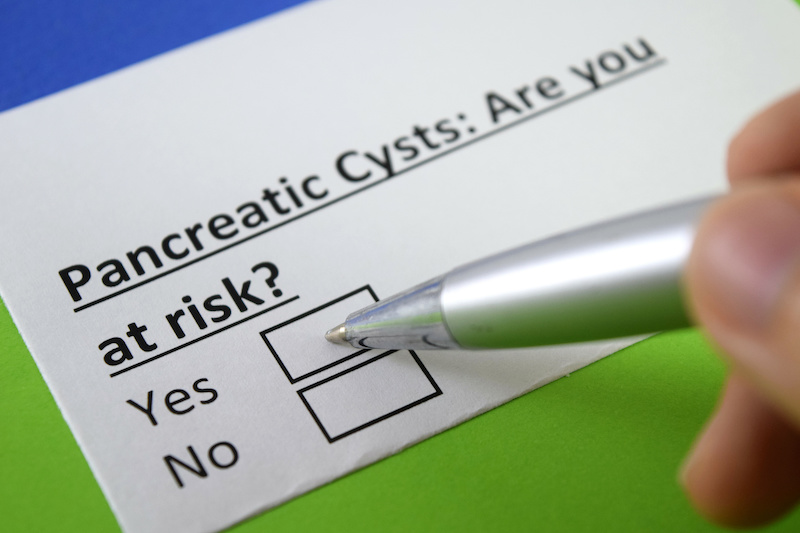
New Brunswick, N.J., November 1, 2021 – It’s not unusual for cysts to form in the pancreas, an important organ that produces enzymes that help digest food, and it secretes hormones—such as insulin—that help regulate metabolism. Although some pancreas cysts are benign, the majority are pre-cancerous and are the most common identifiable precursor to pancreatic cancer. Russell Langan, MD, FACS, FSSO, surgical oncologist at Rutgers Cancer Institute of New Jersey, the state’s leading cancer center and only NCI-designated Comprehensive Cancer Center, chief of Surgical Oncology and Hepatopancreatobiliary Surgery at Cooperman Barnabas Medical Center, an RWJBarnabas Health facility, and assistant professor of surgery at Rutgers Robert Wood Johnson Medical School, shares more information on monitoring pancreatic cysts and pancreatic cancer.
The Difference between Pancreatic Cancer and Cysts
According to the National Cancer Institute, pancreatic cancer is the fourth leading cause of cancer death in the United States. A history of smoking, diabetes and chronic pancreatitis and obesity are risk factors for developing the disease. Further, the risk of pancreatic cancer is higher if there is either a family history of pancreatic cancer or a history of certain genetic syndromes. Pancreatic cysts are fluid-filled growths that develop in the pancreas. Most develop for no apparent reason are incidentally identified but do require surveillance.
Their Link to Pancreatic Cancer
Unlike other cysts such as those on the ovaries, liver or kidneys, pancreatic cysts do have the potential to progress to pancreatic cancer over time. It is widely believed that certain pancreatic cysts represent a field defect of the pancreas and that the risk of developing a pancreas cancer is not only within the cyst but rather the entire gland itself.
Finding Pancreatic Cysts
Pancreatic cysts often don’t cause symptoms, so they’re frequently found during an imaging scan for something else. Once identified, patients and doctors are encouraged to refer to pancreatic care teams where the characteristics of the cyst, pancreas, family history and other risk factors can all be assessed by a pancreas multidisciplinary team.
Preventative Medicine at its Best
When pancreatic cysts are followed and surveyed appropriately, intervening at appropriate times can reduce the risk of developing pancreas cancer. Cooperman Barnabas Medical Center has pioneered one of the first cloud-based data management platforms in the nation to identify, track and monitor patients with pancreatic cysts. Through the program, patients are identified and offered consultation with our pancreas care team. In doing this, the appropriate evidence based follow-up imaging or endoscopy is performed regularly to monitor the cysts and the surrounding pancreas.
To learn more visit rwjbh.org/beatcancer or call 844-CANCERNJ (844-226-2376).
###
For journalists – contact:
Krista Didzbalis
Media Relations Assistant
732-507-8307
krista.didzbalis@rutgers.edu
For patient appointments/inquiries – contact:
844-CANCERNJ (844-226-2376)

